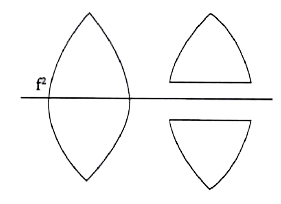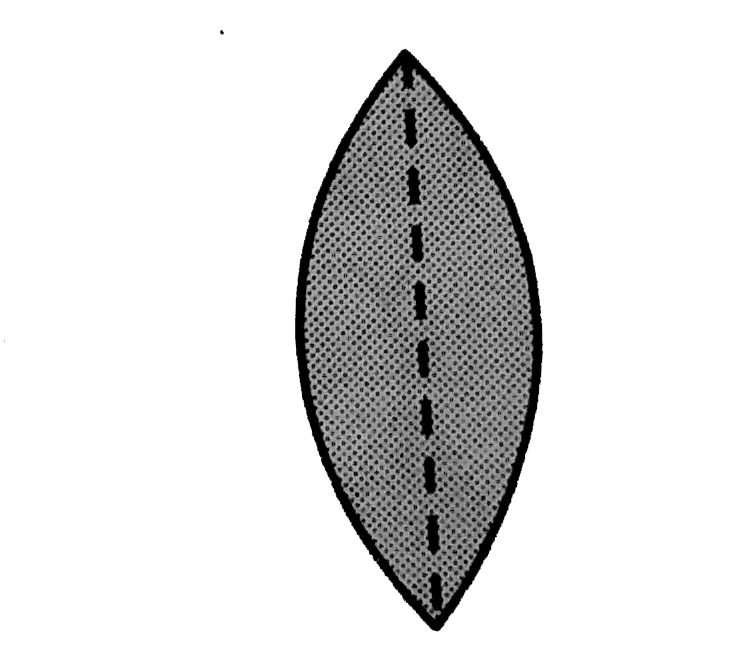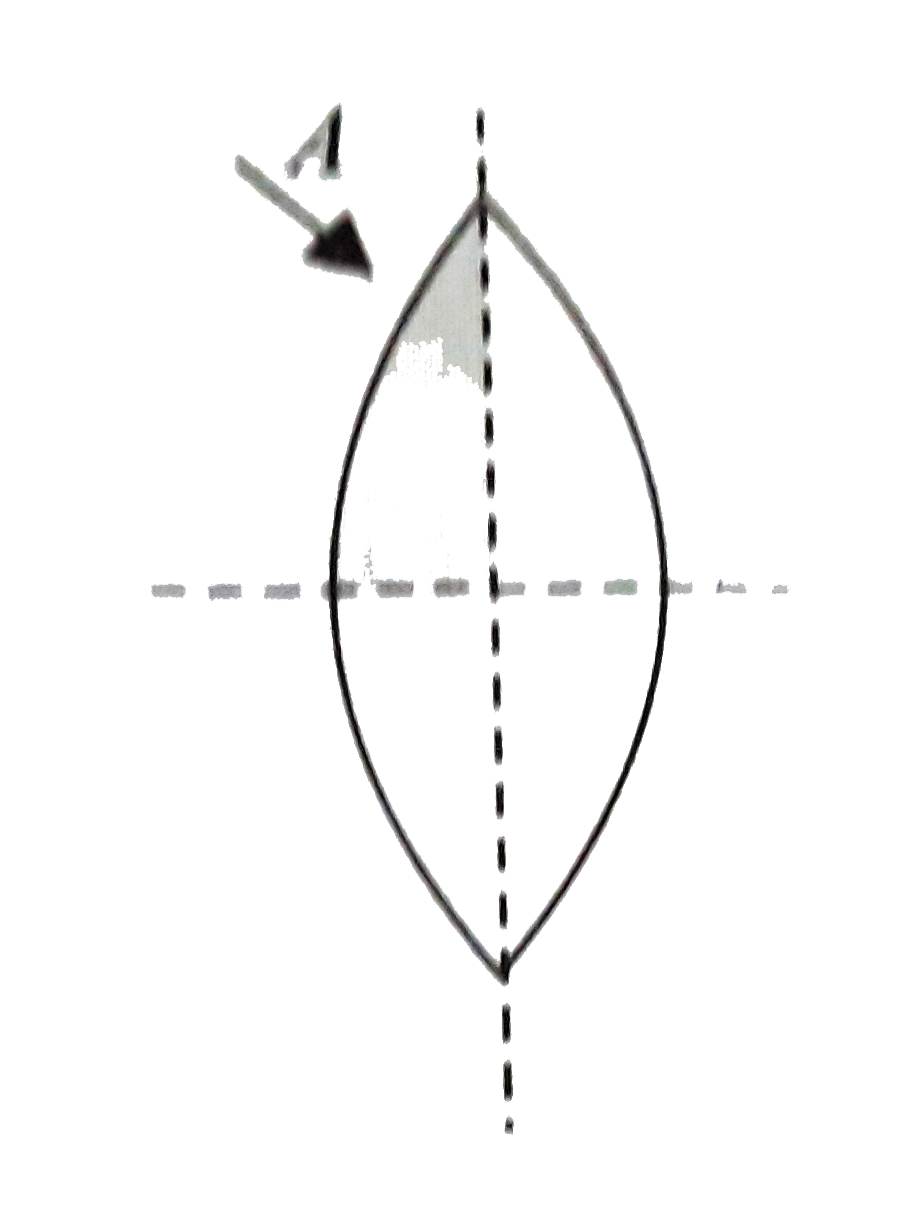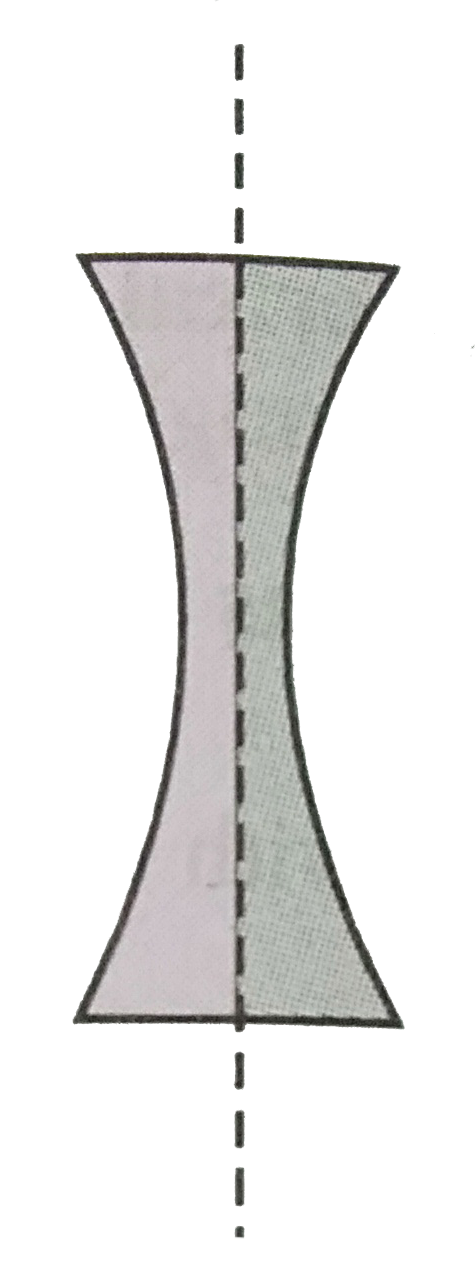A diverging lens of focal lengthis cut into two identical parts, each forming a plano-concave lens. What is the focal length of each part?
Text Solution

R1=∞,R2=R
Applying lens formula
1f=(μ−1)(1R1−1R2)
1f=(1.5−1)(1∞−1R)=−12R (If μ=1.5)
|
Similar Questions
Knowledge Check
If a symmetrical convex lens of focal length 'f is cut into two parts along the principal axis as shown in the figure, the focal length of each part will be:
 Af2Bf4CfD∞
Af2Bf4CfD∞A convex lens has a focal length f. It is cut into two parts along the dotted line as shown in figure. The focal length of each part will be
 Af2BfC32fD2f
Af2BfC32fD2fA convex lens has a focal length f. It is cut into two parts along the dotted line as shown in figure. The focal length of each part will be
 Af2BfC32fD2f
Af2BfC32fD2f
An equiconvex lens of focal length 15cm is cut into two equal halves in thickness. What is the focal length of each half ?
View SolutionA convex lens of focal length 20 cm is placed in contact with a concave lens of focal length 10 cm. What is the focal length and power of the combination ?
View SolutionFocal length of a convex lens in air is 25 cm. It is cut into two equal halves along its principal axis. What will be the focal length of each half ?
View SolutionA convex lens of focal length f cut into parts first horizontally and then vertically. Find the focal length of part A of the lens, as shown:

View SolutionA convex lens of focal length f cut into parts first horizontally and then vertically. Find the focal length of part A of the lens, as shown:

View Solution

